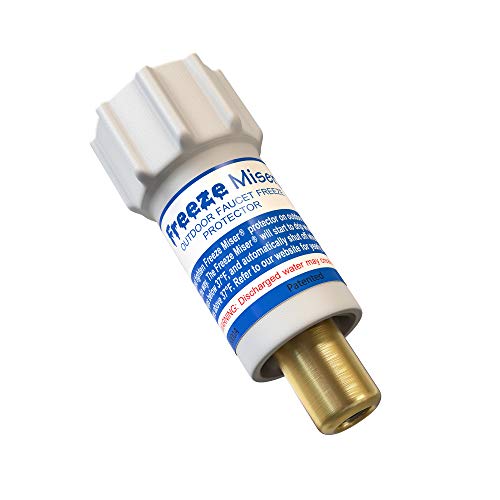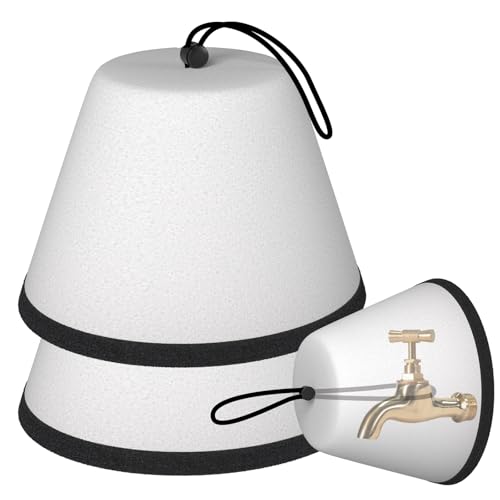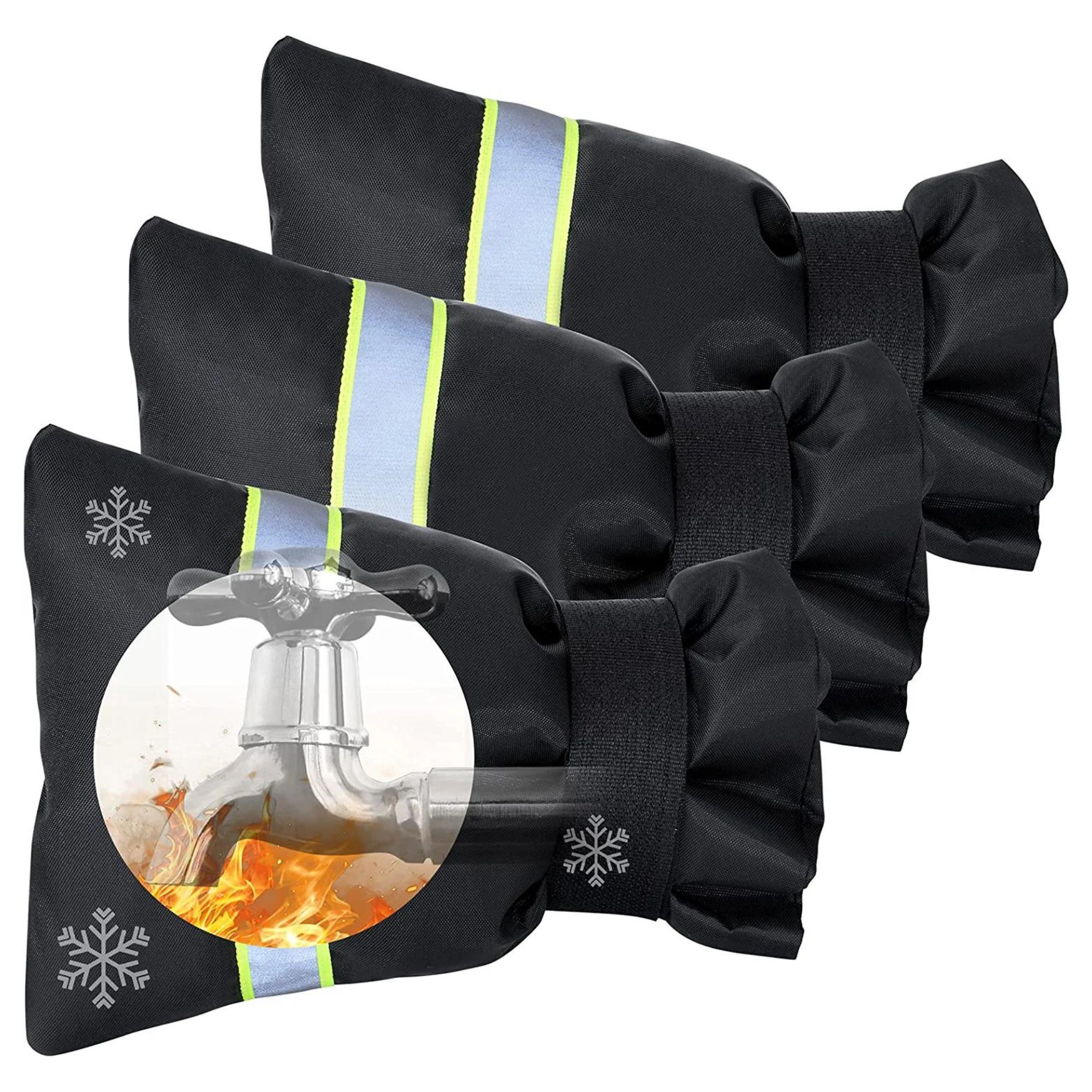How to prevent an outside faucet from freezing in winter – in 4 simple steps
A frozen garden faucet is a nuisance, but it can also cause more serious problems for your home. Here's how to protect yours from frost

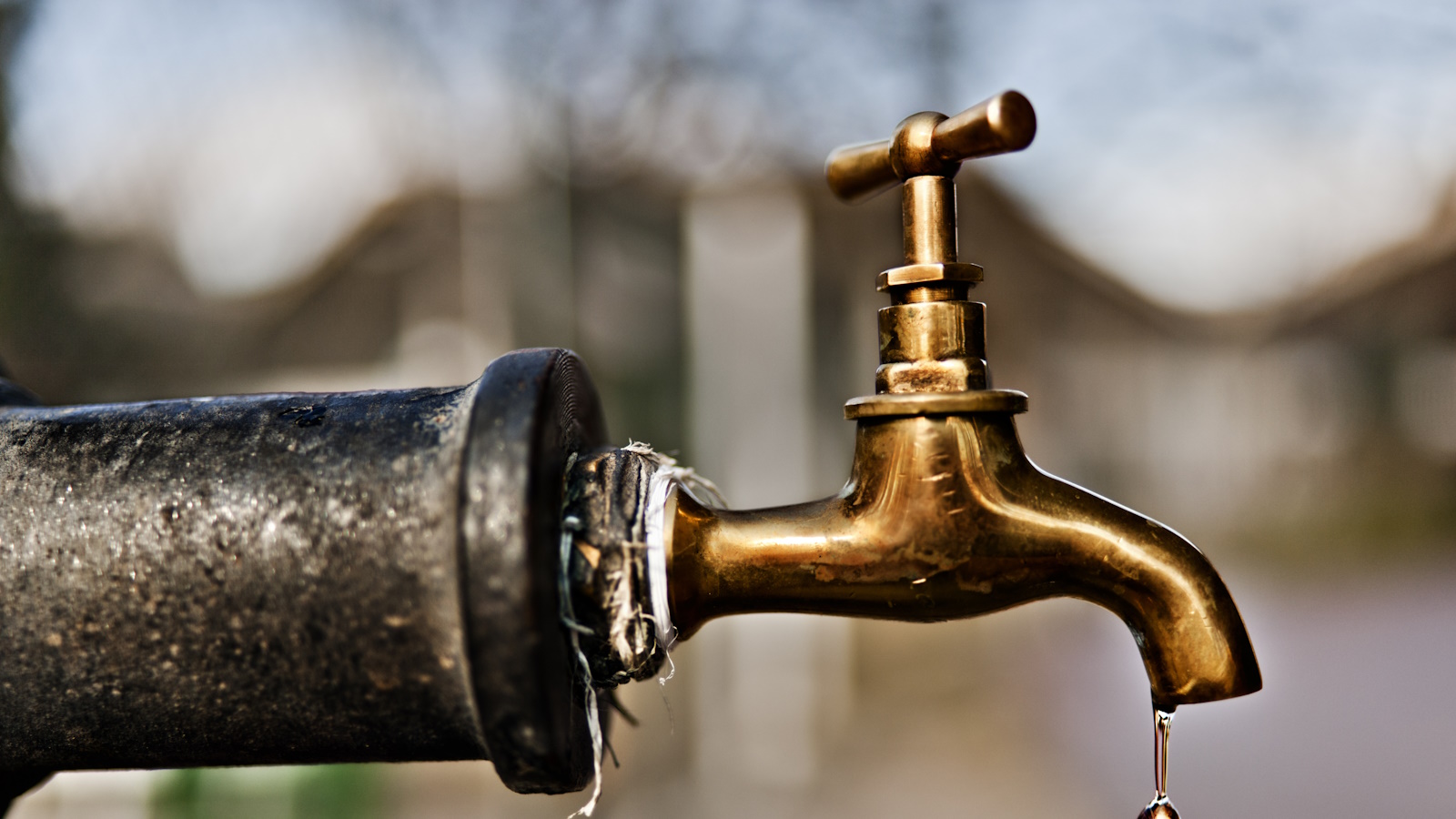
It's the time of year when you need to find out how to prevent an outside faucet from freezing – if they haven't succumbed to the frost already.
Sure, a frozen faucet is annoying, especially if you were hoping to give your car a wash or your winter garden ideas a watering once the frost had lifted. But in fact, a faucet that's frozen over can be much more than just an inconvenience – it can do some serious damage to your home's plumbing.
So, what are the problems a frozen faucet can pose? The most common case scenarios are a burst pipe, a broken valve, a broken joint – or all three, if there was enough water left in the tap. As such, it's a good idea to make protecting your outside spigots from frost part of overwintering your garden.
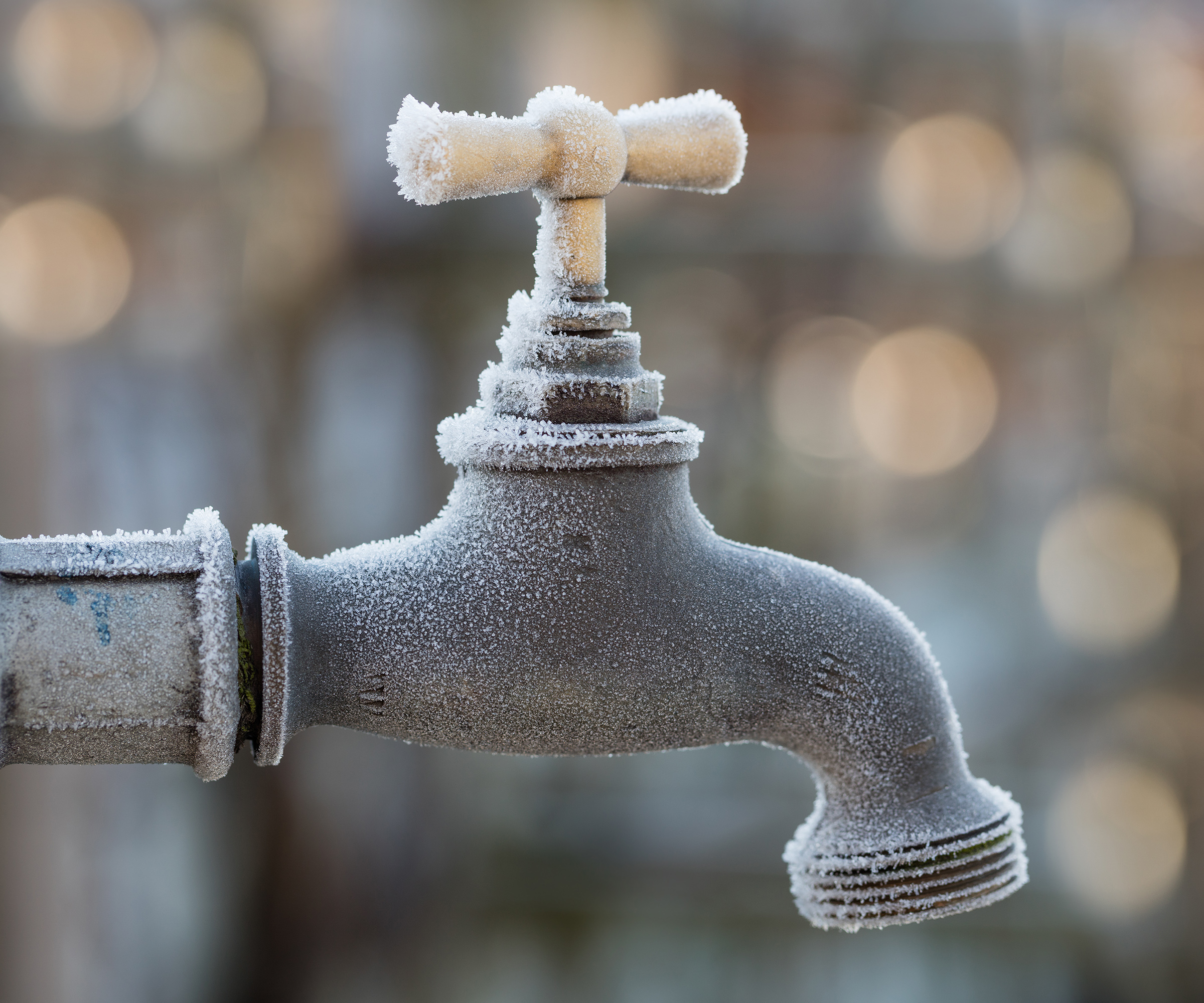
How to prevent an outside faucet from freezing in 4 steps
Even though a garden faucet is outside of the property if it becomes frozen it can cause a pipe joint inside the property to come apart and leak.
Outside faucets in winter are often overlooked when people take measures to protect their homes from the consequences of getting frozen pipes – but protecting them needn't be difficult, as we demonstrate below.
1. Close the shut-off valve indoors
Typically, an outside faucet will have a shut-off valve inside the property, and it's the water remaining in the pipe leading up to this valve that's the problem. Water expands when frozen, and if the frozen water has nowhere to go, it will destroy whatever's constraining it.
For this reason, it's important to shut off the valve that lets water flow into the faucet over the cold winter months – before the first frost.
Design expertise in your inbox – from inspiring decorating ideas and beautiful celebrity homes to practical gardening advice and shopping round-ups.
2. Drain the faucet
Once you've shut off the supply, open the faucet to let water drain out and air flow in.
This air supply will ensure that any water that does remain in the faucet after it's been shut off has room to expand.
3. Insulate the outside faucet
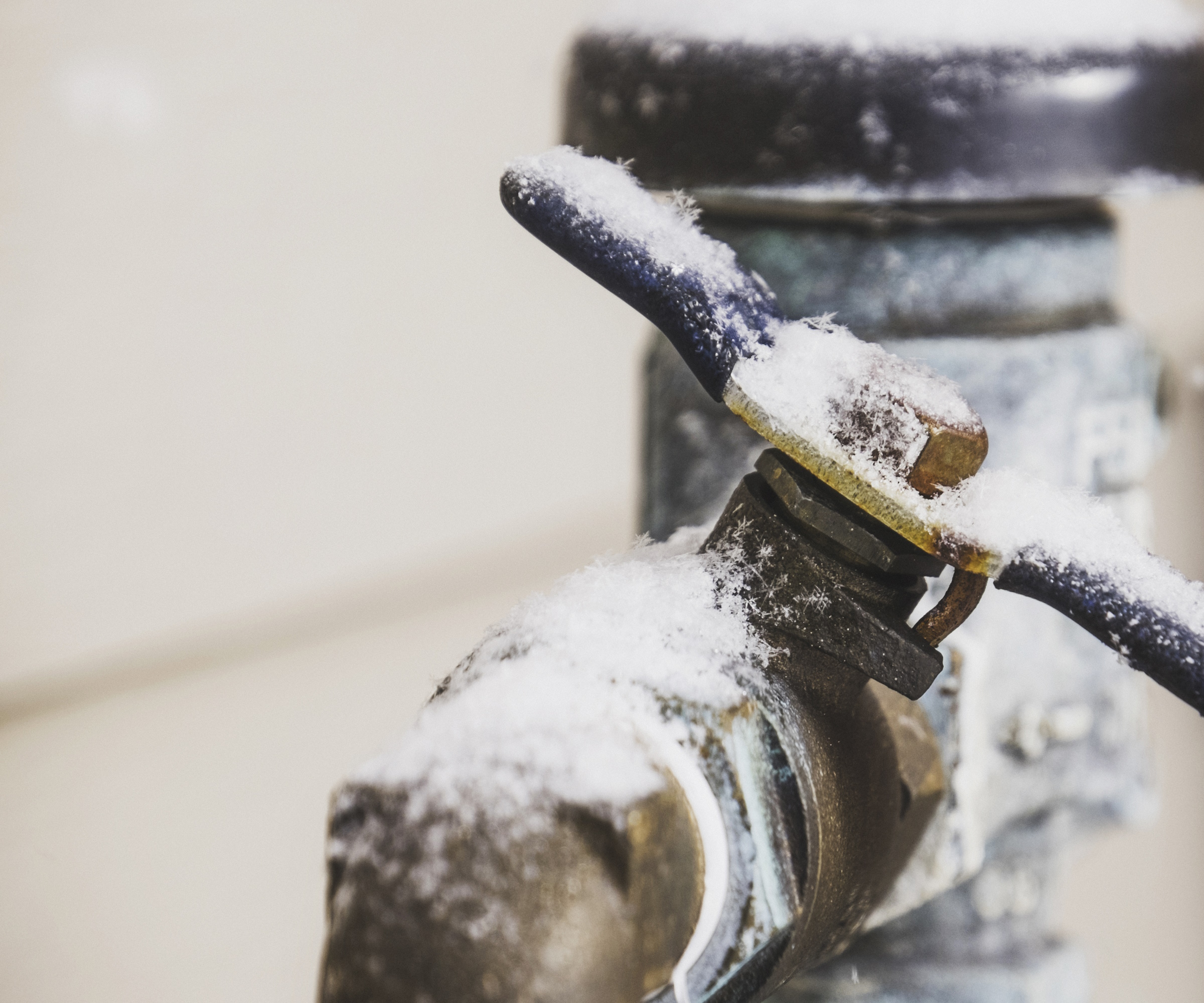
Of course, not all homes have an isolation valve for the outside tap; many older homes only have one valve that controls all water supply to the house.
In this situation, you'll want to insulate your outside faucet to prevent it from freezing over – as well as the surrounding pipework. Purpose made tap covers are widely available online and from most DIY stores. They're inexpensive and will provide enough protection in most cases.
Bear in mind, however, that damage caused by frozen outside faucets may not show until the spring when the water is turned back on – so take time to look for leaks when you do this.
Covering an outside faucet is a good idea if you want to add an extra layer of protection or you can't completely empty your pipes. You can buy different types of insulating faucet covers from Amazon, both hard and soft covers, which can ensure that no water remaining inside freezes. Combine this with insulated tubing for pipework, available on Amazon, and you are providing good protection to protect an outside faucet from freezing in winter.
4. Disconnect the garden hose, too
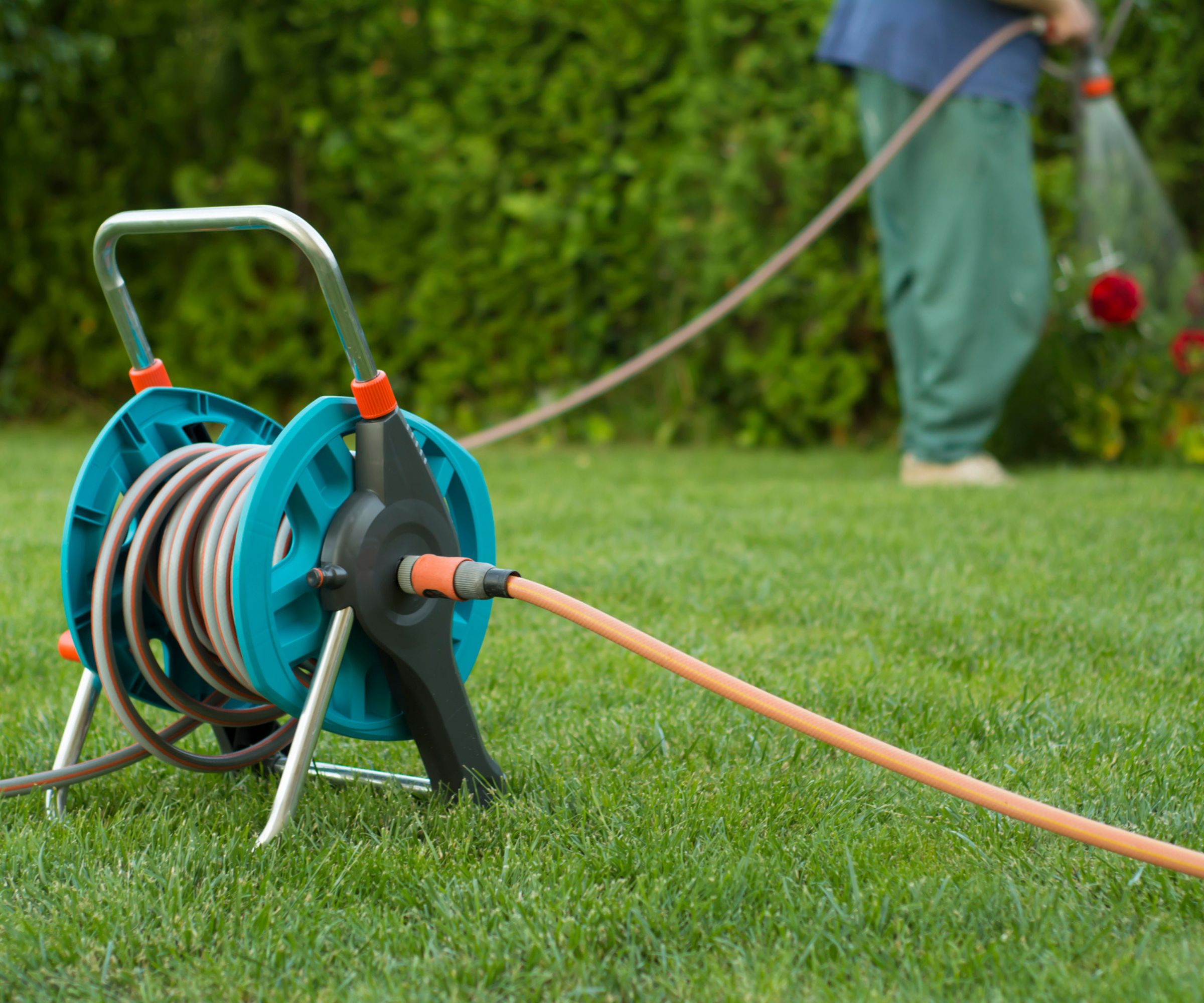
If your water-filled garden hose is left to freeze it can only exacerbate the problem. It's good sense to disconnect it, drain it and put it away until spring comes. This won't just stop your outside faucet from freezing – it will protect the hose too, as plastic splits when it expands.
FAQs
At what temperature does an outside faucet freeze?
An outside faucet will freeze when the outdoor temperature reaches 28ºF (-2ºC) or lower, so it is well worth keeping an eye on night time temperatures in particular as fall progresses, as early frosts often happen at night or in the early morning.
What happens if my outside tap freezes?
And if you're a little too late, and your outside faucet has already frozen over? Don't panic: this doesn't automatically mean that it's already caused a burst pipe or broken valve.
Try wrapping it in a towel that's been soaked in hot water, or gently pour warm (not hot) water over it to unfreeze it. If nothing is working, calling your plumber is the best course of action, before the problem gets worse.
Whilst you are in backyard protection mode, it's also wise around this time of year to start protecting your plants from frost and keep them alive through the winter.

Lucy Searle has written about interiors, property and gardens since 1990, working her way around the interiors departments of women's magazines before switching to interiors-only titles in the mid-nineties. She was Associate Editor on Ideal Home, and Launch Editor of 4Homes magazine, before moving into digital in 2007, launching Channel 4's flagship website, Channel4.com/4homes. In 2018, Lucy took on the role of Global Editor in Chief for Realhomes.com, taking the site from a small magazine add-on to a global success. She was asked to repeat that success at Homes & Gardens, where she has also taken on the editorship of the magazine.
